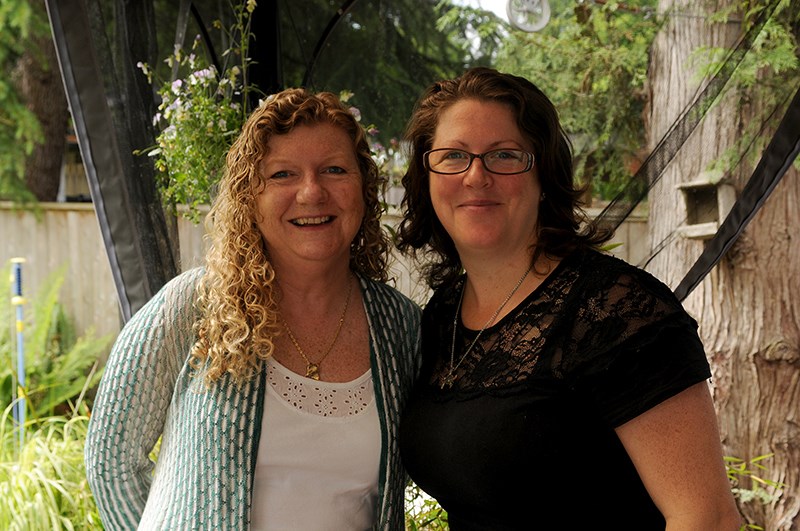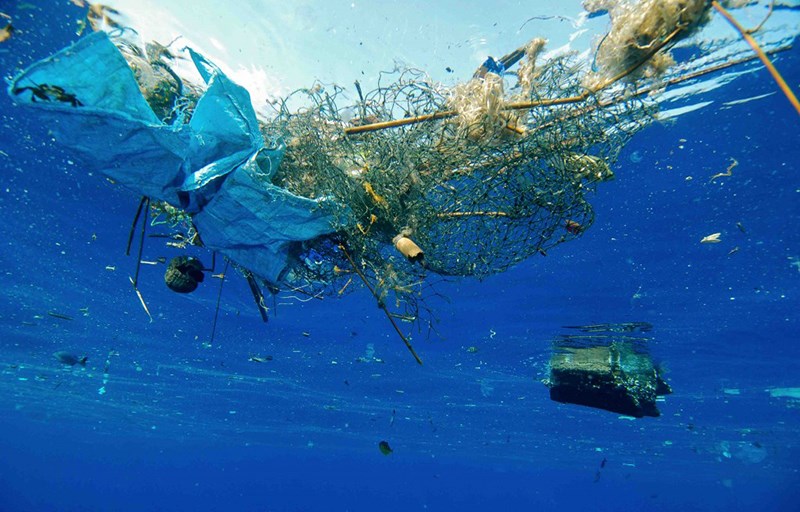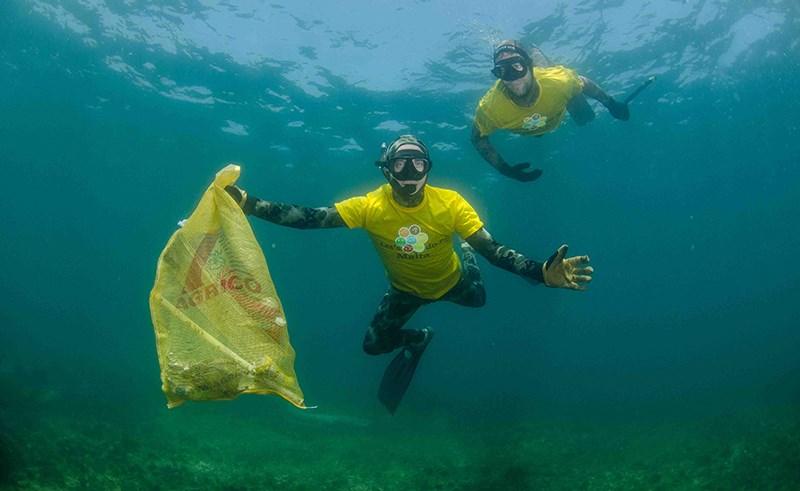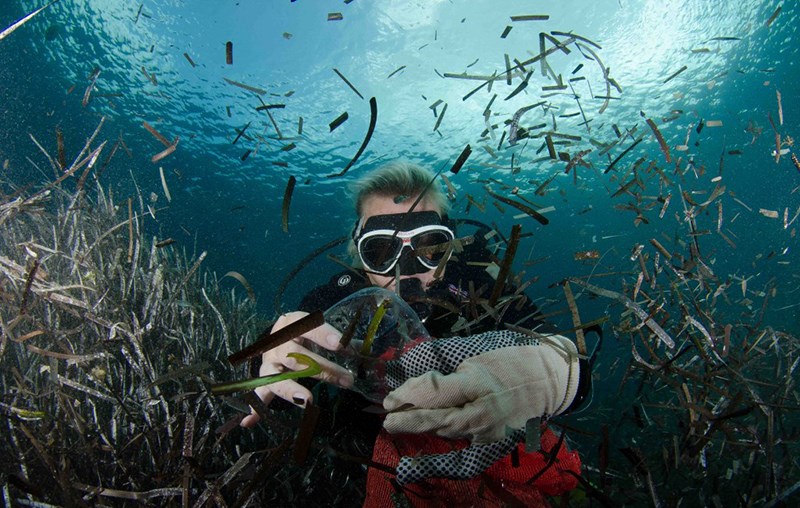To save the planet, you need to speak a universal language, have an effective communication strategy and a narrative that will break people’s hearts while opening their eyes.
Jo Ruxton has tapped into that urgency and emotion, using her background in marine biology and media to share a sad tale that affects every person, animal and ecosystem.
For the past seven years, Ruxton and her team at Plastic Oceans have been putting together a full-length feature documentary that examines how polluted our waters have become with plastic.
This week, Ruxton is in Coquitlam to stay with the foundation’s marketing and fundraising director in Canada, Emma Langson, to talk about the new film, A Plastic Ocean, and to look for support for the campaign and, possibly, starting a branch in B.C. to fund local projects.

The pair has met with representatives from the Recycling Council of British Columbia, the Georgia Strait Alliance, a compostable packaging company and the Vancouver Aquarium, which — along with the city of Vancouver — has backed the foundation.
And next Monday, Langson will speak before Port Coquitlam city council to also seek support.
Though its $3.5-million movie won't be fully released until this fall, the footage has already generated quite a bit of buzz (the trailer was screened at Langson’s children’s school this spring as part of a global Earth day). It has also racked up celebrity endorsements, most notably from environmental activist and musician Julian Lennon.
Langson, whose childhood friend was Ruxton’s daughter while growing up in Hong Kong, agreed to sign on as the foundation networker two years ago. “I will fully admit I had no idea how large the problem was,” she said from her Coquitlam home on Wednesday. “I have lived by the water my whole life and knew how important it was to our survival. What we are doing to it is devastating.”
Ruxton’s journey started when she joined an expedition in search of the Great Pacific Garbage Patch in the North Pacific Gyre, off the coast of San Francisco. There, no trash mass was to be found on the surface; however, below, micro-plastics (some more than 20 years old) were everywhere, being eaten up by everything including the fish, mussels and plankton, which ingest them and pass the toxins on to larger fish and, eventually, humans. “The problem was much more insidious than we had thought,” Ruxton said.

According to the foundation, 300 million tonnes of plastic are made each year, much of it designed for a single use. Around 8 million tonnes of it winds up in the ocean.
It's a topic so dire that Germany placed it on the agenda at last year’s G-7 Summit, hoping to stop plastic shopping bags and bottles from further clogging the oceans. “There’s such a disconnect with the ocean,” Ruxton said, adding, “About 80% of the solid waste pollution in the ocean is plastic. The ocean is the final casualty.”
Ruxton pointed to the Japanese tsunami as an example of how far plastic can travel. Remains from the 2011 disaster are still washing up on the western shore of Vancouver Island — on the other end of the Pacific Ocean — five years later.
Ruxton said her foundation’s drive is to build awareness around education, science and policy, and business sustainability. On the latter point, she cited the example of a catering company she dealt with during a recent speaking engagement in Geneva that had served food on polystyrene plates and plastic cutlery. The manager found it more convenient to use plastic rather than ceramic plates and metal utensils, she said.
Ruxton hopes the film will serve as a wake-up call and force the ban of unnecessary plastics. “We know what to do and we can turn this around,” she said. “We can’t deny this. We can’t allow it to happen. That’s why it’s so important to educate the kids in schools. They get it and pass it on to their parents and grandparents.”
She added, “There’s going to be a demand for people to do this. There are a lot of solutions to be put in place. We have got the answers; we just need the infrastructure.”
• To donate or help with the Plastic Oceans Foundation, go online to plasticoceans.net.
[email protected]
@jwarrenTC




